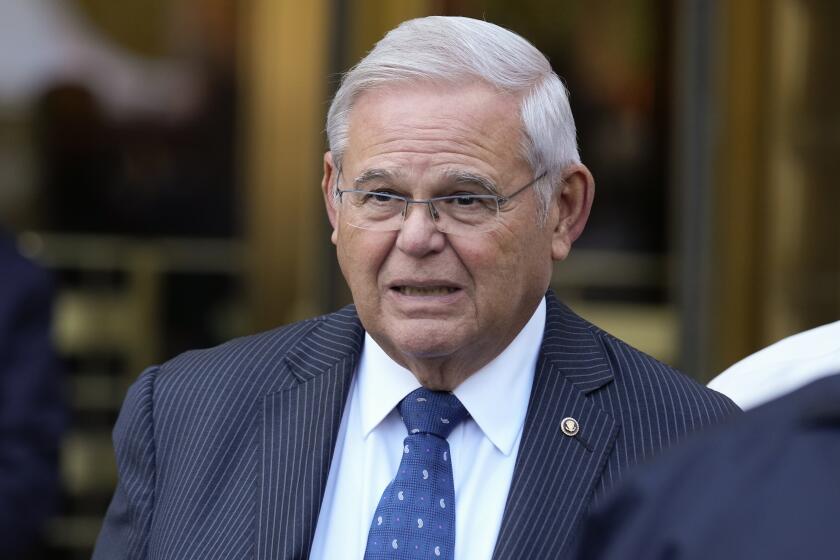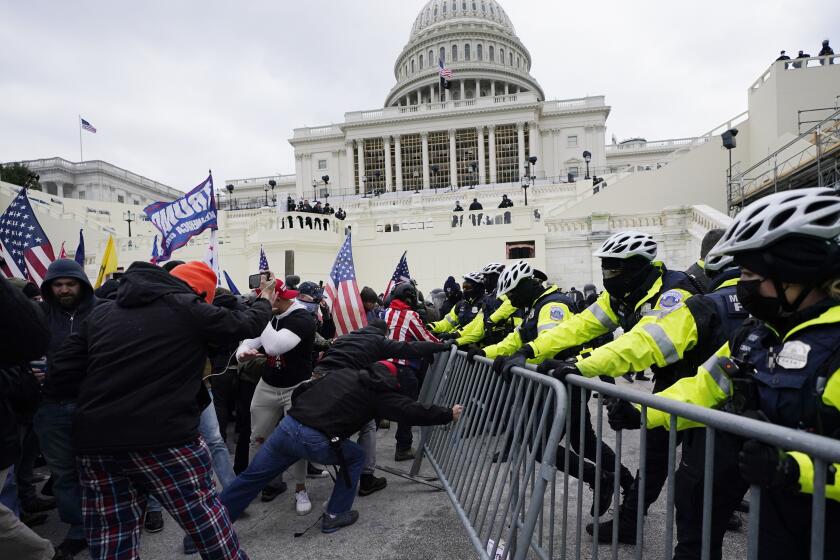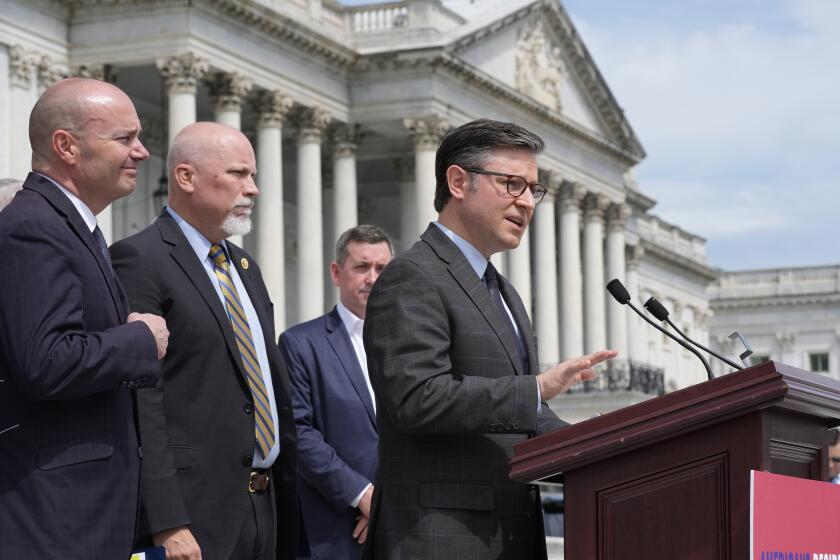Shocking Trail
Damaging disclosures keep emerging from the Reagan Administration’s secret arms sales to Iran. One that should jolt Congress to action is the revelation that a White House aide funneled profits from the sales to contra rebels in Nicaragua.
U.S. Atty. Gen. Edwin Meese III said Tuesday that the key figure in the covert trail leading from Washington to the Middle East and back to the Americas was Lt. Col. Oliver L. North, who had overseen Central American policy for the National Security Council. North, who has been the contras’ most loyal patron in the White House, deposited $10 million to $30 million in Iranian arms-sales profits in Swiss bank accounts on which contra leaders could draw, according to Meese. The secretive North, a Marine with a flair for cloaks and daggers, was fired by President Reagan once his involvement in the contra caper was known--but that is far from the end of the matter.
North’s activities raise questions that probably can be answered only by witnesses testifying under oath before Congress. Among the questions:
--Who else in the NSC and the White House was aware of North’s activities? It seems unlikely that a career military man would engage in such aggressive covert actions without authorization from higher-ups. To what extent was Adm. John M. Poindexter, who voluntarily resigned as Reagan’s NSC director as a result of the North scandal, involved? Or Reagan’s previous national-security chief, Robert C. McFarlane? And how about White House Chief of Staff Donald T. Regan?
--Were North’s activities a violation of the Boland amendment that was intended to bar U.S. government officials from aiding the contras directly or indirectly? It was enacted in 1984, after Congress learned that the Central Intelligence Agency, and not the contras, had mined Nicaraguan harbors.
--Who had control of, and access to, the contra bank accounts? Adolfo Calero and other contra leaders insist that they know nothing about secret Swiss accounts. Some of them may be telling some of the truth, but there is no denying an upsurge in aid to the contras last spring, just months after the secret bank accounts were first set up. At the time, contra spokesmen insisted that the money came from private sources sympathetic to their fight against Nicaragua’s Sandinista government.
Clearly the informal probe being conducted by the attorney general cannot answer all of these questions. They may well be out of reach even for the special commission that Reagan appointed Wednesday to look into the operations of the NSC--a group consisting of former Sen. John Tower of Texas, as chairman, and former Secretary of State Edmund S. Muskie and retired Lt. Gen. Brent Scowcroft, formerly of the NSC. Perhaps the best that the Tower Commission can do is look into ways in which future Presidents can avoid problems like those created by Reagan’s security advisers. But the hard questions will have to be asked by either an independent special prosecutor, as in the Watergate scandal, or the appropriate committees in Congress, using all their resources--including the power to subpoena witnesses and to take testimony under oath.
In the meantime, Meese’s shocking revelations about the contra bank accounts should cause Congress to focus yet again on the wisdom of Reagan’s crusade against tiny Nicaragua. It is clearer than ever that key officials in the Administration were determined to overthrow the Sandinista government in Managua despite doubts in Congress and among Americans generally and against the advice of U.S. allies in Latin America. While Reagan himself may not have known what some White House aides were doing to help the contras, those activities were clearly a reflection of the Administration’s mind-set on Nicaragua. The boss had said that he wanted the Sandinistas to “say uncle.”
As long as Americans get aid to the contras any way they can, legally or otherwise, the Sandinistas will consider the United States a threat and use the threat to tighten their control domestically. That makes it more difficult for this country’s friends in Central and South America, particularly the Contadora Group, to sue for peace with Nicaragua. Negotiations and economic leverage have a better chance than military pressure of persuading the Sandinistas to reduce their ties to the Soviet Bloc and give the Nicaraguan people more freedom than they have now.
More to Read
Get the L.A. Times Politics newsletter
Deeply reported insights into legislation, politics and policy from Sacramento, Washington and beyond. In your inbox three times per week.
You may occasionally receive promotional content from the Los Angeles Times.






